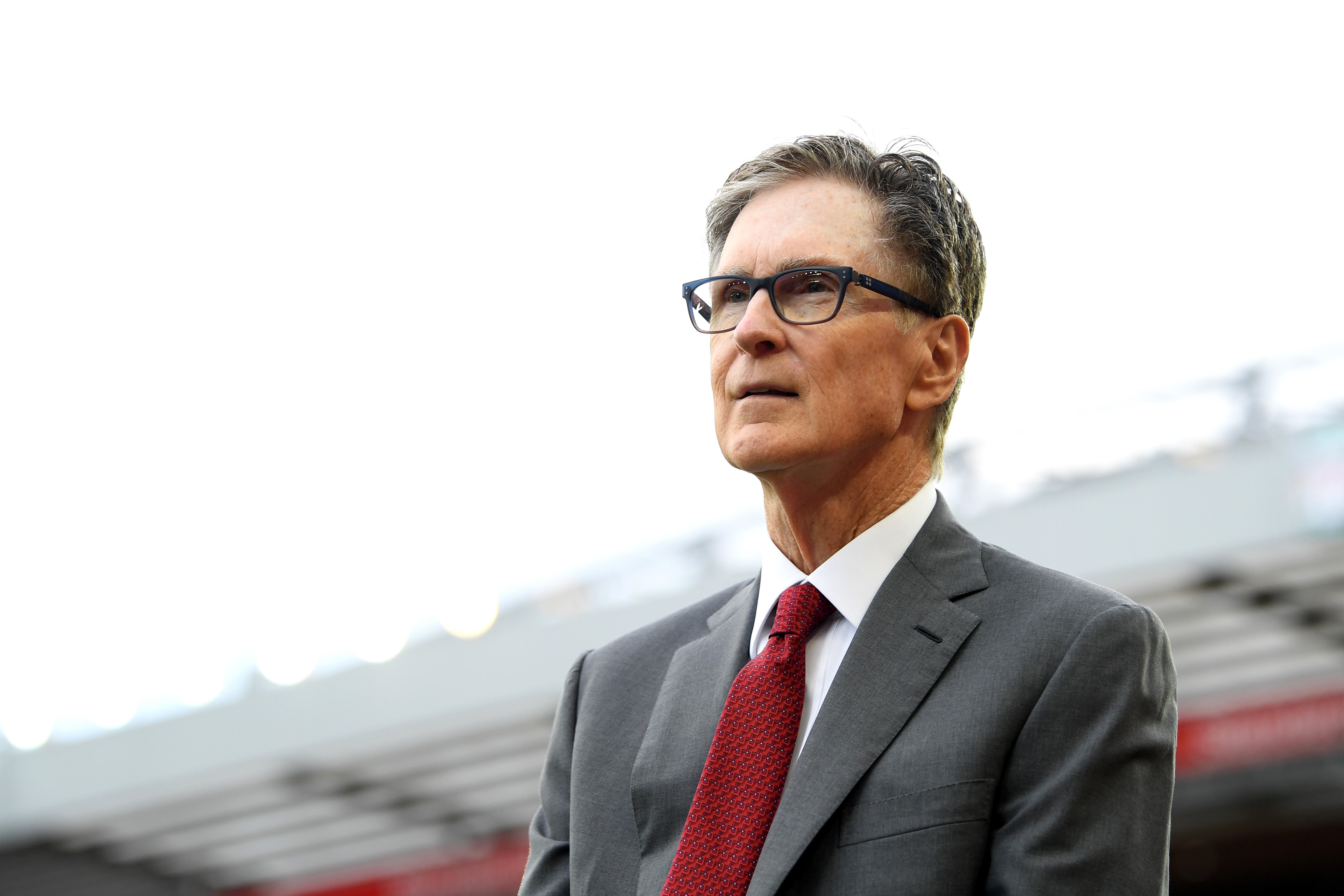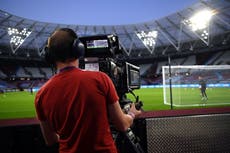Premier League split on ‘Project Big Picture’ as Liverpool and Manchester United lay out plans for change
Spurs are on board with the plans but Chelsea, Arsenal and Manchester City have concerns as the rest of the Premier League firmly opposes the plans, which already have the support by the majority of the EFL

Your support helps us to tell the story
From reproductive rights to climate change to Big Tech, The Independent is on the ground when the story is developing. Whether it's investigating the financials of Elon Musk's pro-Trump PAC or producing our latest documentary, 'The A Word', which shines a light on the American women fighting for reproductive rights, we know how important it is to parse out the facts from the messaging.
At such a critical moment in US history, we need reporters on the ground. Your donation allows us to keep sending journalists to speak to both sides of the story.
The Independent is trusted by Americans across the entire political spectrum. And unlike many other quality news outlets, we choose not to lock Americans out of our reporting and analysis with paywalls. We believe quality journalism should be available to everyone, paid for by those who can afford it.
Your support makes all the difference.Joel Glazer pitched the Project Big Picture plan to fellow Big Six executives by telling them that the strength of English football is in the pyramid. The Manchester United co-owner is one of the driving forces behind the Revitalisation document that has proposed radical changes in the way the English game is run. The Florida-based businessman extolled the virtues of the lower leagues in a bid to persuade sceptical elite clubs to back the proposal.
The blueprint for change was developed by John W Henry, Liverpool’s principal owner, with Old Trafford throwing its weight behind the idea. Glazer suggested that the radical manifesto is necessary to safeguard the existence of professional clubs outside the Premier League.
Project Big Picture would dramatically overhaul both the finances and the power structure of the national game. The draft document contains a number of proposals: a bailout of the EFL with a £250 million payment to mitigate the effects of the Covid-19 crisis; the three lower divisions to receive 25 per cent of the Premier League’s annual income; a trimming of the top flight from 20 to 18 teams; changes to promotion and relegation; and a raft of other suggestions.
The majority of EFL clubs are behind the initiative. Rick Parry, the organisation’s chairman, has worked closely with Henry for at least three years to help develop these ideas. “This new beginning will reinvigorate clubs in the lower leagues and the communities in which they are based,” Parry said.
There is significant opposition elsewhere in the game. Henry and Glazer want to change the one-club, one-vote system in the Premier League. Power would be centred around United, Liverpool, Arsenal, Chelsea, Manchester City and Tottenham Hotspur, with Everton, Southampton and West Ham United having a say as part of a “long-term shareholder” group. Six votes would be enough to decide on policy. The remaining 11 top-flight clubs would lose their voice in determining the division’s direction.
There are divides even within the ‘Big Six’. Spurs are supportive but Chelsea, Arsenal and City have reservations. The rest of the Premier League are against the idea. The plan would reduce them to powerless bit-part players, giving them their share of the wealth but stripping them of the ability to have a say in their own fate.
A Premier League statement criticised Parry for publicly backing Project Big Picture, which the ruling body called “damaging.” The negative reaction was widespread.
Whitehall waded into the row. A spokesperson for the Department of Digital, Media, Culture and Sport said that the Government is “surprised and disappointed that at a time of crisis when we have urged the top tiers of professional football to come together and finalise a deal to help lower league clubs, there appear to be backroom deals being cooked up that would create a closed shop at the very top of the game.”
The Football Supporters’ Association weighed in, too. The fans’ group said: “Once again it appears that big decisions in football are apparently being stitched up behind our backs by billionaire club owners who continue to treat football as their personal fiefdom.”
Henry is determined that the game needs to change. As early as 2012, the Boston-based tycoon was talking in private about the need to restructure the sport. The man at the helm of Fenway Sports Group believes that the majority of Premier League clubs are more concerned with staying in the top flight and collecting the television money that trying to become competitive. He also thinks parachute payments for relegated clubs distort the Championship. The other members of the Big Six agree with Henry that little more than a handful of English clubs draw any global interest and most of the top flight sides are there just to make up the numbers.
The elite teams also share his view that a 20-team Premier League is too demanding and has a negative impact on the performances of English clubs in the Champions League. Reducing the top flight to 18 sides and getting rid of the Community Shield and League Cup would reduce the workload for clubs involved in continental competition.
Those involved are keen to portray Revitalisation as an act of altruism. At least in the short term, the richest clubs would see a dropoff in their revenues. Rivals are sceptical, suggesting that mega-rich United and Liverpool have the least to lose. The message from the north-west giants is that everyone has to make sacrifices to ensure the sustainability of the pyramid. “There will be a shift of power,” Parry said. “But it’s power with responsibility. The two biggest clubs in the country are showing some leadership. This would protect teams that are at risk from going under.”
The EFL chairman, who was the founding CEO of the Premier League in 1992, was wrestling with overspending in the Championship even before the pandemic exacerbated the game’s problems. The former Liverpool chief executive has worked closely with Henry on a number of projects since FSG bought Anfield a decade ago and the pair have had long-standing conversations about possible ways to create a more viable fiscal environment across the professional leagues. “This has been years in the thinking, months in the making,” Parry said. “It has been thoroughly thought through.”
The negative reaction from many quarters will probably mean that Project Big Picture will be shelved but the debate about the future of the game will continue. Henry is said to be “fired up” about the subject and almost everyone in the sport accepts that things cannot continue in the same manner in a post-Coronavirus world. The framework of Revitalisation is likely to be rejected but the need to revamp the economics of the game is becoming more pressing on a daily basis. Parry, whose clubs are most at risk, put in a vehement defence of the strategy put forth by Glazer and Henry. “It's called rational behaviour,” he said. “This needs to be dealt with once and for all. The way that you deal with it is with a fairer distribution of money and narrowing the gap (between rich and poor), which is exactly what we’ve done.”



Join our commenting forum
Join thought-provoking conversations, follow other Independent readers and see their replies
Comments